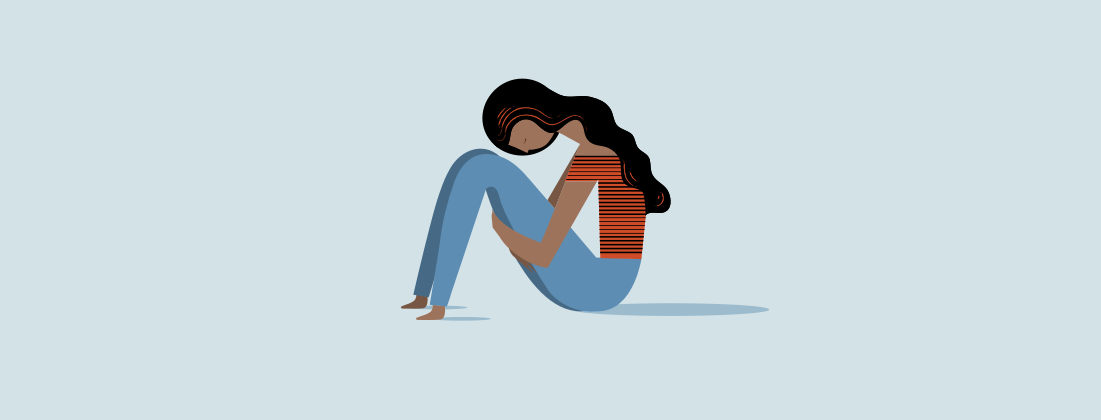Emotional Toll of Psoriasis
Since the age of 5, living with a body covered with psoriasis plaques was extremely difficult. People didn’t understand and were frightened by what they saw.
I’m a 58-year-old woman, and I don’t think there was ever a day in the first 45 years that I didn’t feel inadequate or worthless. Isn't that terrible?
Feeling utterly hopeless
I used to be angry, especially in my earlier years. I always held it in. I was crying on the inside but smiling on the outside.
I remember as a teenager wanting to hold a relative’s baby, she didn’t say no, but I could almost see terror and fear in her eyes. I was 13 at the time. I remember asking friends if I could help them cook. They would always refuse.
I sometimes felt like people were avoiding me. I used to ride the train a lot and have lost count of the times people have moved away from me.
I was very active as a teenager. I was on the track team and even tried out to be a cheerleader. But I gave up both because showing my skin was too much to bear.
I would have rather died than for anyone to look at me. I was already an outcast, and the idea of having a group of my peers isolate me when they saw my skin made me feel utterly hopeless.
Psoriasis made me feel alone
When I was in my early 20’s, I went to see a psychologist because I was depressed. For some strange reason, my psoriasis never entered the conversation.
Couldn’t being covered with scales my whole life makes me angry and frustrated? Couldn't it cause a lack of confidence and not wanting to be around people? Could it have had a direct correlation to my depression? I say the answer is yes, all around.
When people first met me, they never saw my kind heart. I was clean, well-dressed, and well-mannered. The only thing people saw was my scales. I knew what it felt like to be treated like a leper.
Psoriasis made me feel alone and like I was the only person. People shunned me and I was left managing my emotions all by myself.
My psychological scars needed healing
But then, as I got older, when people would pull away or make remarks, I didn’t shy away from hurt feelings. I would explain to them that I was not contagious and that I have had this disease my whole life.
Educating myself and others seemed to be my key to acceptance. When I finally started getting the proper treatment to clear my skin, I still didn’t feel like I was part of the group. I had so many psychological scars to heal.
Having psoriasis brings on lots of anger, and I had a lot of anger.
Support can turn things around
If you feel like your psoriasis ruins your life and makes you miserable, try to seek professional help. Talk to friends, family, or join a support group network.
The one thing I have learned in the past few years is talking to someone helps. This is part of my healing process. I feel I have so much to share with the world; remember, we are not alone in this fight.
One thing I have said my whole life - you will never understand my struggle unless you have walked a mile in my shoes. I know that ignorance of this disease is brutal to overcome, but I promise you, letting people know how we feel is the first step.

Join the conversation